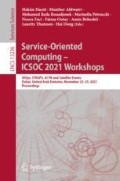Abstract
Gamification is gaining in popularity and is increasingly showing potential to benefit humans. Numerous applications have been developed but more research is required on the key motivational factors responsible for user adherence. The purpose of this research is to investigate strategies to encourage people in adopting a healthy lifestyle using gamification and identifying the key factors responsible for retaining users. The research will not be limited to certain activities such as gym or sports but motivates people to emphasize on small activities, for example, doing household work, walking and many others. This research endeavors to develop an application using Unity and C# which is a real-time platform supported by iOS and Android. The research focuses on Behavior Change Techniques and Self-Determination Theory to tackle the issue of user adherence.
Access this chapter
Tax calculation will be finalised at checkout
Purchases are for personal use only
References
World Health Organization. https://www.who.int/news-room/fact-sheets/detail/obesity-and-overweight. Accessed 09 June 2021
Johnson, D., Deterding, S., Kuhn, K.A., Staneva, A., Stoyanov, S., Hides, L.: Gamification for health and wellbeing: a systematic review of the literature. Internet Interv. 6, 89–106 (2016). https://doi.org/10.1016/j.invent.2016.10.002
Sailer, M., Hense, J.U., Mayr, S.K., Mandl, H.: How gamification motivates: an experimental study of the effects of specific game design elements on psychological need satisfaction. Comput. Hum. Behav. 69, 371–380 (2017). https://doi.org/10.1016/j.chb.2016.12.033
Jones, B.A., Madden, G.J., Wengreen, H.J.: The FIT game: preliminary evaluation of a gamification approach to increasing fruit and vegetable consumption in school. Prev. Med. 68, 76e79 (2014). https://doi.org/10.1016/j.ypmed
Landers, R.N., Landers, A.K.: An empirical test of the theory of gamified learning: the effect of Leaderboards on time-on-task and academic performance. Simul. Gaming 45(6), 769e785 (2014). https://doi.org/10.1177/1046878114563662
Tóth, Á., Tóvölgyi, S.: The introduction of gamification: a review paper about the applied gamification in the smartphone applications 000213–000218 (2016). https://doi.org/10.1109/CogInfoCom.2016.7804551
Kasurinena, J., Knutas, A.: Publication trends in gamification: a systematic mapping study. In: Computer Science Review, vol. 27, pp. 33–44, February 2018
Stinson, N.S., et al.: development and testing of a multidimensional iphone pain assessment application for adolescents with cancer. J. Med. Internet Res. 15. e51 (2013). https://doi.org/10.2196/jmir.2350
Rose, K.J., Koenig, M., Wiesbauer, F.: Evaluating success for behavioral change in diabetes via mHealth and gamification: MySugr’s keys to retention and patient engagement. Diab. Technol. Ther. 15, A114 (2013). https://doi.org/10.1089/dia.2012.1221
Cechetti, N.P., et al.: Developing and implementing a gamification method to improve user engagement: a case study with an m-Health application for hypertension monitoring. Telematics Inform. 41, 126–138 (2019)
Munson, S.A., Consolvo, S.: Exploring goal setting, rewards, self-monitoring, and sharing to motivate physical activity. In: 2012 6th International Conference on Pervasive Computing Technologies for Healthcare and Workshops, Pervasive Health 2012, pp. 25–32 (2012). https://doi.org/10.4108/icst.pervasivehealth.2012.248691
Ozanne, M., Navas, A.C., Mattila, A.S., Van Hoof, H.B.: An investigation into Facebook “liking” behavior an exploratory study. Soc. Media Soc. 3(2) (2017). https://doi.org/10.1177/2056305117706785
Michie, S., et al.: The Behavior Change Technique Taxonomy (v1) of 93 hierarchically clustered techniques: building an international consensus for the reporting of behavior change interventions. Ann. Behav. Med. 46 (2013). https://doi.org/10.1007/s12160-013-9486-6. A Publication of the Society of Behavioral Medicine
Pickering, K., et al.: Gamification for physical activity behaviour change. Perspect. Public Health 138(6), 309–310 (2018)
Shi, L., Cristea, A.I., Hadzidedic, S., Dervishalidovic, N.: Contextual gamification of social interaction – towards increasing motivation in social E-learning. In: Popescu, E., Lau, R.W.H., Pata, K., Leung, H., Laanpere, M. (eds.) ICWL 2014. LNCS, vol. 8613, pp. 116–122. Springer, Cham (2014). https://doi.org/10.1007/978-3-319-09635-3_12
Bovermann, K., Bastiaens, T.J.: Towards a motivational design? Connecting gamification user types and online learning activities. Res. Pract. Technol. Enhanc. Learn. 15(1), 1–18 (2020). https://doi.org/10.1186/s41039-019-0121-4
Souza-Júnior, M., Queiroz, L., Correia-Neto, J., Vilar, G.: Evaluating the use of gamification in m-health lifestyle-related applications. In: Rocha, Á., Correia, A., Adeli, H., Reis, L., Mendonça Teixeira, M. (eds.) New Advances in Information Systems and Technologies. AISC, vol. 445, pp. 63–72. Springer, Cham (2016). https://doi.org/10.1007/978-3-319-31307-8_7
Rasche, P., Schlomann, A., Mertens, A.: Who is still playing Pokémon Go? A Web-Based Survey. JMIR Serious Games. 5(2), e7 (2017). https://doi.org/10.2196/games.7197.In: Eysenbach, G., (ed.)
Augusto, J., Kramer, D., Alegre, U., Covaci, A., Santokhee, A.: The user-centred intelligent environments development process as a guide to co-create smart technology for people with special needs. Univ. Access Inf. Soc. 17(1), 115–130 (2017). https://doi.org/10.1007/s10209-016-0514-8
Bene, O.: Gamification to Encourage Increase on Healthier Physical Activity in Younger Users, M.Sc Thesis, Middlesex University, London (2019)
Acknowledgements
This project has benefited from the input of many colleagues: M.Sc. Ondrej Benes, Dr Nicola Payne (Psychology Department), Dr Anne Elliot (London Sports Institute), Dr Simon Best (Management Leadership and Organisations Department),). We would like to thank Laurence Oliver (Greenwich Leisure Ltd.), Gillan Kelly (Greenwich Leisure Ltd.), Andrew Gilbert (Greenwich Leisure Ltd.), Jalpa Assani (Greenwich Leisure Ltd.), Alesia Carrington (Barnet Council) for their contribution.
Author information
Authors and Affiliations
Corresponding author
Editor information
Editors and Affiliations
Rights and permissions
Copyright information
© 2022 Springer Nature Switzerland AG
About this paper
Cite this paper
Fatima, S., Augusto, J.C., Moseley, R., Urbonas, P. (2022). Gamification for Healthier Lifestyle – User Retention. In: Hacid, H., et al. Service-Oriented Computing – ICSOC 2021 Workshops. ICSOC 2021. Lecture Notes in Computer Science, vol 13236. Springer, Cham. https://doi.org/10.1007/978-3-031-14135-5_17
Download citation
DOI: https://doi.org/10.1007/978-3-031-14135-5_17
Published:
Publisher Name: Springer, Cham
Print ISBN: 978-3-031-14134-8
Online ISBN: 978-3-031-14135-5
eBook Packages: Computer ScienceComputer Science (R0)

